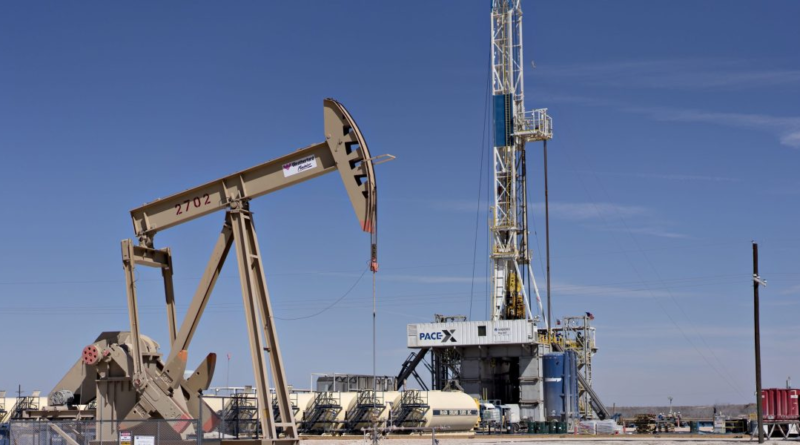'It cannot continue:' Women oilfield workers allege they had to endure pervasive sexual harassment, groping, and no bathrooms
A lawsuit set for trial in July against the world’s largest provider of drilling services will offer rare public testimony about the plight of women working in America’s oil fields.
Jessica Cheatham, who worked as an engineer for SLB, previously known as Schlumberger Ltd., is seeking more than $1 million in damages after the company allegedly failed to protect her from pervasive sexual harassment and, she says, effectively ended her career when she complained.
While Cheatham’s claims have been documented in the suit, sworn affidavits provided by other women who worked at SLB reveal more tales of abuse and discrimination in the male-dominated oil fields.
Fluids engineer Michelle Underwood alleged in her affidavit a male colleague reached into her coveralls and groped her, while trainee Eugenia Galan claimed she had, more than once, heard someone try to enter her company apartment in the middle of the night.
Field engineer Gianna Credaroli said in a court filing she wasn’t given access to a restroom and was forced to change her feminine hygiene product “in a ditch barely obscured from view.” The company responded to her complaints of discrimination by sending her to increasingly dangerous locations until she quit “in fear of my safety,” she claimed.
The lawsuit has the potential to be a landmark case if it goes to trial on July 17, shedding light about working conditions women face in an industry that’s long struggled to attract and retain female talent. While sexual discrimination in the male-dominated oil sector isn’t uncommon, companies facing such lawsuits are far more likely to settle than take cases to trial.
SLB has already reached a financial settlement with another former employee, Sara Saidman, who initiated the lawsuit Cheatham later joined. Cheatham isn’t pursuing class-action status for strategic reasons, her lawyers said.
“SLB makes every effort to foster a harassment and discrimination free workplace, starting with the employee code of conduct which is given to, and acknowledged by, every employee,” the company said in an emailed statement. “Complaints are taken seriously, investigated thoroughly, and addressed appropriately.”
Abuse allegations
Cheatham, who worked for SLB from 2017 to 2020, said she was subjected to sexually explicit comments and alleges that the company’s human resources department conspired with her harassers to end her career at the company. Not only were her complaints not adequately investigated, she said, SLB stopped staffing her on rigs, which prevented her advancement. Later, she said, the company offered her a demotion.
“This feels like this case could have been brought in the 1970s,” said Christine Williams, a sociology professor at the University of Texas at Austin who authored the book Gas-Lighted: How the oil and gas industry shortchanges women scientists.
“The oil and gas industry continues to be the most hostile industry to women,” Williams said. “All of the research shows women have the fewest opportunities, the least representation in this industry compared to all other industries.”
Women’s challenges
Whether or not a jury hears Cheatham’s allegations, the issues explored in the case may raise questions about whether SLB will be able to meet its own goal of bringing more women into the company. While it doesn’t disclose how many of its field workers are women, SLB is aiming for a 30% female workforce by 2030, it said in a corporate responsibility report last year. The global industry average is 22%.
SLB has acknowledged some of the difficulties its female workers face, saying in 2021 that an internal survey revealed more than half of its female employees couldn’t go to work in the field at some point because they didn’t have access to facilities there. A year later, SLB’s then vice president of human resources, Gavin Rennick, told a conference that, despite efforts to improve diversity in the industry, “we have yet to actually see the results.”
“There are two issues for women in the oil field,” said Jane Stevenson, who leads the board and executive succession advisory practice at the hiring firm Korn Ferry. “One is sexual harassment, which is just inappropriate and not condoned, period.” The second issue is practical, she said: “Difficulty getting the equipment I need that I’m able to manage and handle, the uniforms, boots, etc.”
“It cannot continue,” Cheatham said in an interview. “We belong out here — we belong in this industry, and I’m not going to let Schlumberger take that from me.”


